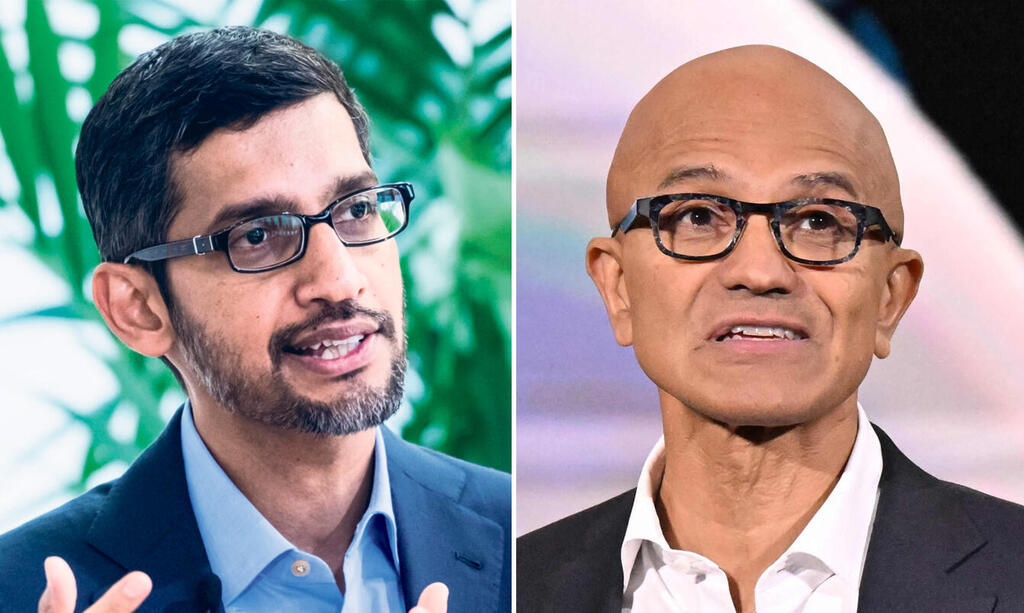
How cloud credit became tech's new currency
Tech giants like Amazon, Microsoft and Google use their cloud services as a kind of new currency. They invest in companies while giving "credit" to use the cloud instead of paying in cash, and along the way attract and tie start-ups to their infrastructures
Step aside, Bitcoin. In the world of technology, a new "currency" is being established for the transfer of value: credit for cloud computing. Technology giants, who possess extremely expensive processing and storage capacities, distribute, give, or offer credit for the use of their cloud services as an investment tool in exchange for shares, control, or to attract startups to base their businesses on their platforms at the beginning of their journey. The goal is to take over global market shares in the cloud.
Since OpenAI launched ChatGPT in November 2022, many startups have been operating in the field of generative artificial intelligence, trying to offer new products based on this popular technology. To build such products, many supercomputers equipped with advanced chips (GPUs) are required, which operate and are maintained in huge data centers. All these components and their operation require a huge capital investment, which only the technology giants can afford. "GPUs at this stage are much more difficult to obtain than drugs," said Elon Musk at a conference in May of last year. For example, the research company SemiAnalysis calculated that ChatGPT costs OpenAI approximately $700,000 per day in computing costs alone, based on the processing required to run GPT-3.5, the default model at the time. Therefore, anyone who wants to operate in this field depends on the computing power of big companies like Amazon, Microsoft, Alphabet in the USA, and Alibaba and Tencent in China.
For the giants, the cloud services division attracts the most attention during reporting seasons. Their performance in that segment, the growth, and the market share they manage to control have become more material for investors than the core of the companies' own operations. Today, the performance of Amazon's AWS cloud division is more important to its stock price than its retail activity. Similarly, the performance of Microsoft's Azure and Alphabet's Google Cloud has a greater impact on their stock behavior when reports are released. During 2023, Alphabet's cloud revenues totaled $33 billion (a 27% annual increase), Microsoft's $88 billion (a 17% annual increase), and Amazon's $91 billion (13% growth).
The technology giants find themselves in a unique situation: they centrally own a coveted resource, but the field is very competitive. Accordingly, they leverage this resource creatively—using cloud processing credits as a unit to transfer value, akin to a new type of exchange currency. For example, in Microsoft's significant investment in OpenAI in January 2023, amounting to $10 billion, only a fraction of this sum was directly poured into the startup. Most of the money was allocated as credits for OpenAI to purchase computing power from Microsoft's cloud services. This way, the investment not only gives OpenAI access to the necessary computing power for product development but also strengthens Microsoft's cloud services, which today hold the second-largest market share globally (25%), trailing Amazon (31%).
OpenAI's main rival, Anthropic, entered into two substantial deals last year with Alphabet and Amazon. These transactions also included significant financing components, not as direct capital injections but as dedicated funds to purchase cloud and processing services from these companies, alongside commitments to become their cloud customers. Last September, Amazon announced a $4 billion investment in Anthropic, with Anthropic committing to purchase $4 billion worth of cloud services from Amazon (AWS) over the next five years. Similarly, Alphabet pledged to invest $3 billion in Anthropic in two rounds last year, with Anthropic committing to spend a similar amount on Google Cloud services. This strategy allows the giants to return their investments directly into their cloud revenue streams, often without creating a tax event if the financing comes in the form of credits rather than capital transfers.
These transactions have attracted the attention of regulators worldwide, who have begun examining the connections between artificial intelligence companies and the technology giants financing them. In April, the CEO of the British Competition and Markets Authority (CMA), Sarah Cardell, expressed concerns at a conference about a "network" of over 90 partnerships and strategic investments established by Google, Apple, Microsoft, Meta, Amazon, and Nvidia in the generative artificial intelligence market. In response, the giants typically argue that their investments are limited, and they do not hold board or observer positions in these companies. However, the interconnected network they are building binds many companies to their cloud services, potentially stifling competition.
Alongside large individual transactions of credit for shares, the technology giants also engage in numerous small transactions of credit for market share. These transactions are marketed as "grant" programs, sometimes bordering on philanthropy. These grants support startups at various growth stages, research labs, non-profit organizations, and government programs, offering cloud computing credits ranging from hundreds to hundreds of thousands of dollars. These programs are described as "free," meaning the companies do not have to give up shares but must move their operations to the cloud. Switching between cloud services is not simple and often involves paying high fees to the tech giants.
Some grant programs built by Amazon, Google, Microsoft, and others include collaborations with other companies and investment funds. Credits are not only "hypothecated" for the use of the cloud services of that giant but also on a specific platform already cooperating with that giant, creating an eco-system based on cloud computing services. These programs incentivize startups to run their products on the specific cloud of the giant in question, hoping that as these businesses need more computing power, they will choose to stay on these platforms and become paying customers.
The Chinese are not left behind. Like Amazon, Alibaba may not be one of the biggest players in the cloud field globally, but with a 4% market share, it is the largest Chinese player. Recently, Alibaba has started investing in several generative artificial intelligence companies, offering products similar to those of American companies, including Moonshot, Zhipu, MiniMax, and 01.ai. According to various reports, large parts of these investments were made in the form of credits for the Chinese companies to purchase cloud services from Alibaba. In these cases, Alibaba bypasses the cash component entirely, providing credit instead.
In China, the cloud computing situation is even more unique against the backdrop of the various bans imposed by the Biden administration on the export of chips. The Chinese government intervenes in the industry itself. The latest action in March opened subsidy programs for startups, with the government providing "computing vouchers" worth between $140,000 and $280,000, redeemable in state-owned data centers.














